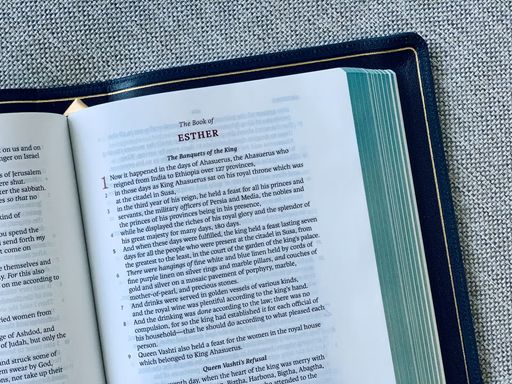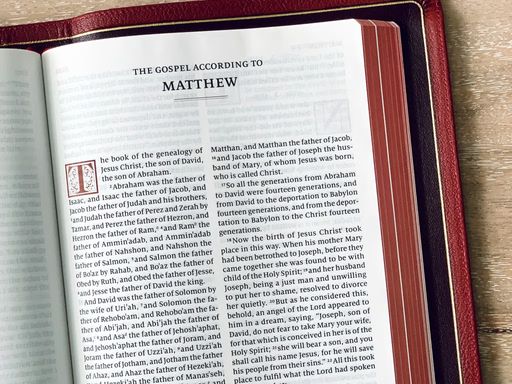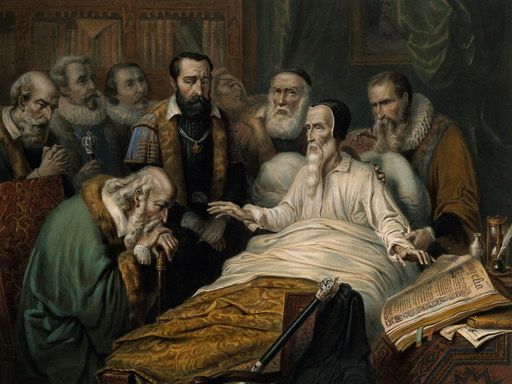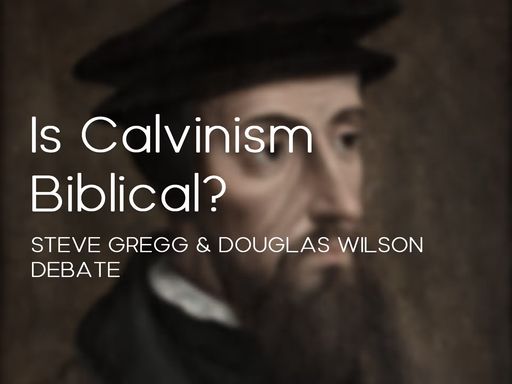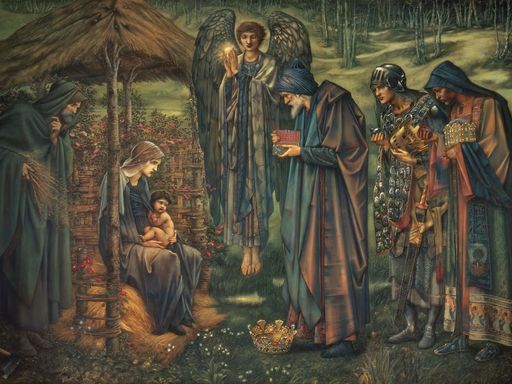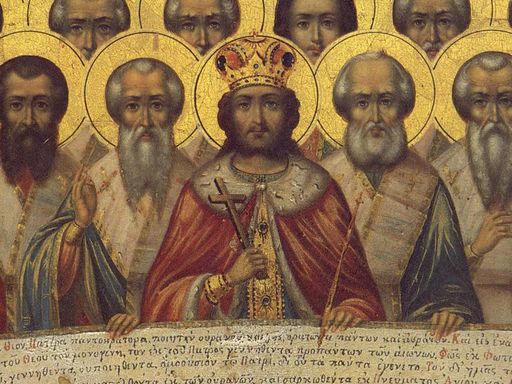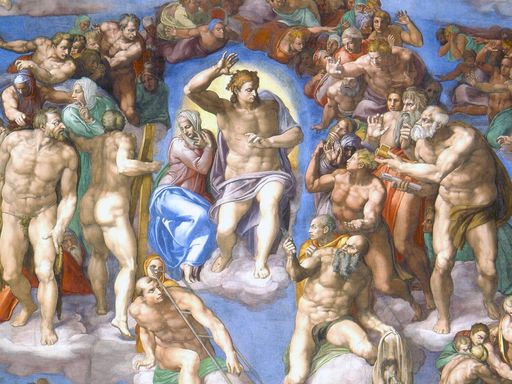
Sermon on the Mount
Steve Gregg
Steve Gregg's 14-part series on the Sermon on the Mount deepens the listener's understanding of the Beatitudes and other teachings in Matthew 5-7, emphasizing the importance of living a righteous and compassionate life.

Introduction
In this talk, Steve Gregg discusses the Sermon on the Mount and states that it presents a lofty objective for human attainment. He explains that Jesus went up a mountain to present this discourse, similar to when Moses was on Mount Sinai, and that it was recorded by Matthew as a gathering of Jesus'

Matthew 5:3 - 5:6 (Beatitudes 1 - 4)
In this talk, Steve Gregg discusses the first four Beatitudes found in Matthew 5:3-6. He explains that being merciful will lead to obtaining mercy and that the comfort promised in God's kingdom is not limited to heaven but rather is something that Christians can experience in the present. Gregg clar

Matthew 5:7 - 5:8 (Beatitudes 5 - 6)
In this discourse, Steve Gregg expounds on the fifth and sixth Beatitudes from Matthew 5:7-5:8. He interprets mercy as a compassionate action towards those who are in need of it, such as the poor, instead of demanding rights or enforcing justice. Gregg also discusses the importance of forgiveness an

Matthew 5:9 - 5:12 (Beatitudes 7 - 8)
In this talk, Steve Gregg focuses on the seventh and eighth Beatitudes found in Matthew 5:9-5:12. He emphasizes the importance of being peacemakers in a world filled with conflict and division. Gregg notes that peacemaking involves reconciling with others, even those who may hold a grudge. He also d

Matthew 5:13 - 5:16: Salt and Light
Steve Gregg discusses the concepts of salt and light as mentioned in Matthew 5:13-16. He explains that salt and light have particular impacts, effects, and influences on something or someone. Gregg highlights that Christians need to live according to biblical patterns and principles, even if it goes

Matthew 5:17: Law and Prophets (Part 1)
In this study of Matthew 5:17, Steve Gregg explores the difficult passage in the Sermon on the Mount where Jesus says that righteousness must exceed that of the religious leaders of his society. Gregg reflects on the Jewish emphasis on keeping the law in order to be made righteous and suggests that

Matthew 5:18 - 5:20: Law and Prophets (Part 2)
In this discussion, Steve Gregg examines Matthew 5:18-20 and its various interpretations. He explores the idea that the ceremonial law is descriptive of a future righteousness, whereas the moral law is prescriptive of actual righteousness. He also suggests that Jesus fulfilled at least the ethical a

Matthew 5:27 - 5:37: Adultery, Divorce, and Oathes (Part 1)
In this message, Steve Gregg delves into Matthew 5:27-37, where Jesus discusses adultery, divorce, and oaths. Gregg explains that just as anger is akin to murder, so too is lustful looking akin to adultery. He underscores the gravity of sexual sin and stresses the importance of guarding against lust

Matthew 5:27 - 5:37: Adultery, Divorce, and Oathes (Part 2)
In this discussion, Steve Gregg explores Matthew 5:27-37 and the topics of adultery, divorce, and oaths. He emphasizes the importance of exercising discernment in managing sexual desires and avoiding lusting after others in one's heart. Additionally, he delves into the nuances of divorce in a Christ

Matthew 5:38 - 5:48: Non-Resistance to Evil
Steve Gregg shares a discussion on non-resistance to evil, referencing Matthew 5:38-48 in the Bible's Sermon on the Mount. He explains that love is a moral obligation and a distinctly biblical concept, not simply an emotion or subjective feeling. Gregg emphasizes that non-resistance means not physic

Matthew 5:43 - 6:18: Love of Enemies and Hypocricy
In Matthew 5:43-6:18, Jesus exhorts his followers to love their enemies and to avoid hypocrisy in their religious practices. He cautions against seeking attention and praise for one's charitable deeds and encourages private, sincere prayer. Jesus emphasizes the importance of loving others, even thos

Matthew 6:1 - 6:8: Charity, Prayer, and Fasting
In this message, Steve Gregg explores the symmetry of three subject matters, charity, prayer, and fasting, in Matthew chapter 6. He encourages listeners to pray with genuine motives and avoid using vain repetitions. Gregg also emphasizes the importance of acknowledging our dependency on God and the

Matthew 6:19 - 6:34: God or Money
Steve Gregg examines Matthew 6:19-34, which presents a conflict between God and money. He views possessions as superfluous and believes that Jesus forbids work and job when taken without modification or qualification. Gregg proposes that Christians should lay up their treasures in heaven and serve G

Matthew 7
In this talk, Steve Gregg discusses the topic of judging others and how Christians should approach it. He notes that making assessments based on surface information can be foolish and shameful, and followers should aim to use charitable judgment when assessing others. Gregg also touches on prayer, f






